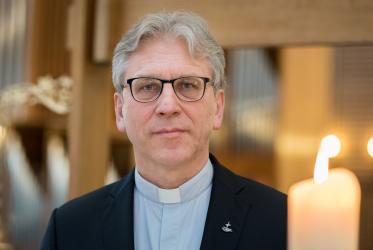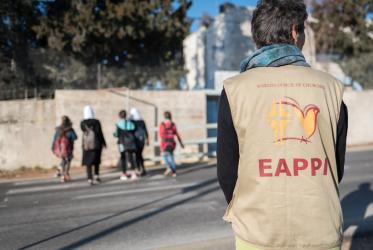Displaying 21 - 40 of 91
Proclaiming the Peace of the Lord Jesus Christ in a Religiously Plural World
18 January 2021
Rethinking Ecological Relationships in the Anthropocene era
11 - 13 February 2021
Brazilian churches call for transformative racial justice
23 November 2020
WCC executive committee maps future with hope in uncertain times
19 November 2020
A visionary missionary heads home
25 March 2020
South Sudan Church leaders welcome new cabinet
15 March 2020
In Korea, young ‘stewards of hope’ forge ahead together
19 September 2019
Dr Saïd Ailabouni: God is on the side of rejected, oppressed, occupied
12 September 2019
A passionate Korean feminist and ecumenist
21 August 2019
Peacemakers at work in Sri Lanka
29 April 2019














